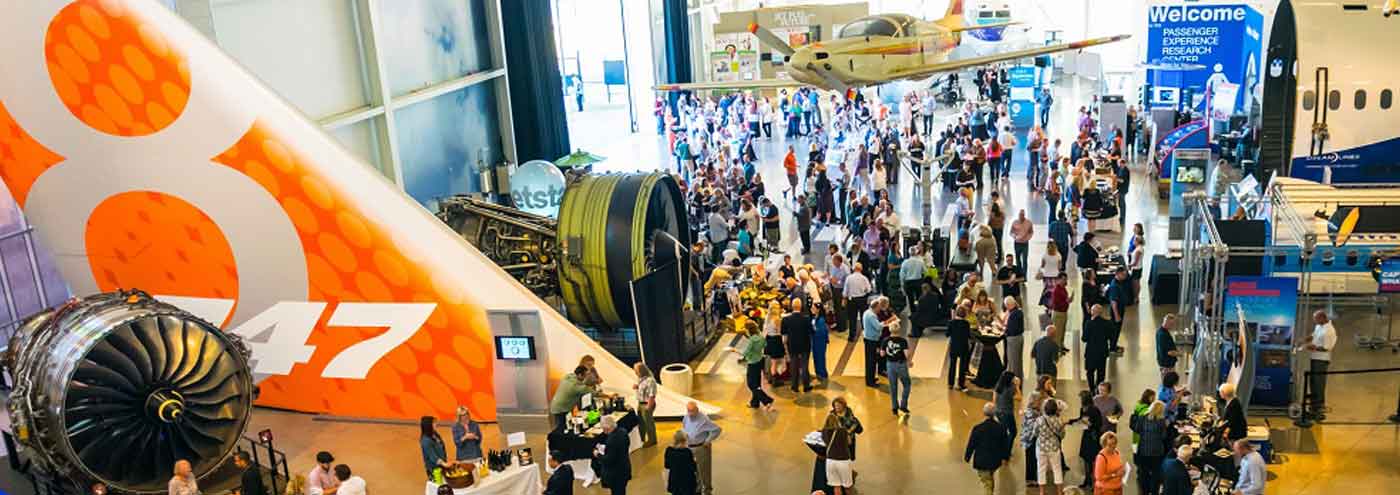Infrastructure Investment and Jobs Act (IIJA)
2 Dec 2021
Advocacy, News
The Infrastructure Investment and Jobs Act (IIJA) was officially signed into law on November 15th, 2021. The IIJA includes both formula funding and competitive grants. Formula funding is a type of mandatory grant that is awarded based on a set of specific criteria. This type of grant is typically administered by state agencies and allocated based on quantifiable variables. Here in Washington, funds can be allocated to regional planning authorities, the Washington State Department of Transportation, and other state and local agencies.
Washington can expect to receive direct formula funding for the following programs:
-
$4.7 billion for maintenance of our highways
-
$605 million for bridge repair and replacement
-
$1.9 billion to improve public transportation
-
$385 million for infrastructure development for airports, including $16 million for Paine Field
-
$110 million to reduce transportation related emissions
-
$71 million to support the expansion of an EV charging network
-
$125 million to increase the resilience of our transportation system
-
$40 million for highway safety traffic programs
-
$49.4 million to augment Commercial Motor Vehicle safety efforts to reduce CMV crashes through the Federal Motor Carrier Safety Administration's Motor Carrier Safety Assistance Program
New and expanded competitive grant opportunities launching over the course of the next year:
New Programs
National Culvert Removal, Replacement and Restoration Grant Program ($1B)—This provision, authored by Senator Maria Cantwell will help remove, replace, and restore culverts which will enable the recovery of salmon passage and habit. This funding will help Washington meet the requirements outlined in the 2013 federal injunction.
Federal Aviation Administration (FAA) Terminal Program ($5B) – This discretionary grant program will provide funding for airport terminal development and other landside projects.
MEGA Projects ($15B) – This new National Infrastructure Project Assistance grant program will support multi-modal, multi-jurisdictional projects of national or regional significance.
Promoting Resilient Operations for Transformative, Efficient, and Cost-saving Transportation (PROTECT) Program ($8.7B) – PROTECT will provide $7.3 billion in formula funding to states and $1.4 billion in competitive grants to eligible entities to increase the resilience of our transportation system. This includes funding for evacuation routes, coastal resilience, making existing infrastructure more resilient, or efforts to move infrastructure to nearby locations not continuously impacted by extreme weather and natural disasters.
Safe Streets for All ($6B) – This program will provide funding directly to local and tribal governments to support their efforts to advance “vision zero” plans and other improvements to reduce crashes and fatalities, especially for cyclists and pedestrians.
Electric or Low Emitting Ferry Program ($500M) – This competitive grant program will support the transition of passenger ferries to low or zero emission technologies.
Rural Ferry Program ($2B) – This competitive grant program will ensure that basic essential ferry service continues to be provided to rural areas by providing funds to States to support this service.
Federal Highway Administration (FHWA) competitive grants for nationally significant bridges and other bridges ($12.5B) – This new competitive grant program will assist state, local, federal, and tribal entities in rehabilitating or replacing bridges, including culverts. Large projects and bundling of smaller bridge projects will be eligible for funding. This funding will be critical to make necessary improvements on the US 2 Trestle.
FTA All Station Accessibility Program ($1.75B) – This competitive grant program will provide funding to legacy transit and commuter rail authorities to upgrade existing stations to meet or exceed accessibility standards under the Americans with Disabilities Act.
Charging and fueling infrastructure discretionary grants (Up to $2.5B) – This discretionary grant program will provide up to $2.5 billion in funding to provide convenient charging where people live, work, and shop.
Reconnecting Communities Pilot Program ($1B) – This new competitive program will provide dedicated funding to state, local, MPO, and tribal governments for planning, design, demolition, and reconstruction of street grids, parks, or other infrastructure.
Strengthening Mobility and Revolutionizing Transportation (SMART) Grant Program ($1B) – The SMART Grant program will be a programmed competition that will deliver competitive grants to states, local governments, and tribes for projects that improve transportation safety and efficiency.
Rural Surface Transportation Grant Program ($2B) –?This new competitive grant program will improve and expand surface transportation infrastructure in rural areas, increasing connectivity, improving safety and reliability of the movement of people and freight, and generate regional economic growth.
Expanded Programs
Rebuilding American Infrastructure with Sustainability and Equity (RAISE) Grants ($15B) – RAISE grants support surface transportation projects of local and/or regional significance.
Infrastructure for Rebuilding America (INFRA) Grants ($14B) – INFRA grants will offer needed aid to freight infrastructure by providing funding to state and local government for projects of regional or national significance. The BIL also raises the cap on multimodal projects to 30% of program funds.
Federal Transit Administration (FTA) Low and No Emission Bus Programs ($5.6B) – BIL expands this competitive program which provides funding to state and local governmental authorities for the purchase or lease of zero-emission and low emission transit buses as well as acquisition, construction, and leasing of required supporting facilities.
FTA Buses + Bus Facilities Competitive Program ($2.0B) – This program provides competitive funding to states and direct recipients to replace, rehabilitate, and purchase buses and related equipment and to construct bus-related facilities including technological changes or innovations to modify low or no emission vehicles or facilities.
Capital Investment Grants (CIG) Program ($23B) – The BIL guarantees $8 billion, and authorizes $15 billion more in future appropriations, to invest in new high-capacity transit projects communities choose to build. The BIL provides funds that may support the 25 projects included in FTA's Annual Report on Funding Recommendations for FY22 as well as additional projects across the country seeking CIG funding over the next five years. Projects must meet CIG program requirements to receive funding.
Port Infrastructure Development Program ($2.25B) – BIL will increase investment in America’s coastal ports and inland waterways, helping to improve the supply chain and enhancing the resilience of our shipping industry. BIL overall doubles the level of investment in port infrastructure and waterways, helping strengthen our supply chain and reduce pollution.
FHWA Nationally Significant Federal Lands and Tribal Projects ($1.5B) – This discretionary program provides funding for the construction, reconstruction, and rehabilitation of nationally-significant projects within, adjacent to, or accessing Federal and tribal lands. BIL amends this program to allow smaller projects to qualify for funding and allows 100% federal share for tribal projects.
Retained
5307 Ferry Program ($150M) – BIL retains the $30 million per year passenger ferry program for ferries that serve urbanized areas.
If you have any questions, please email MishaL@economicalliancesc.org.
More Topics



